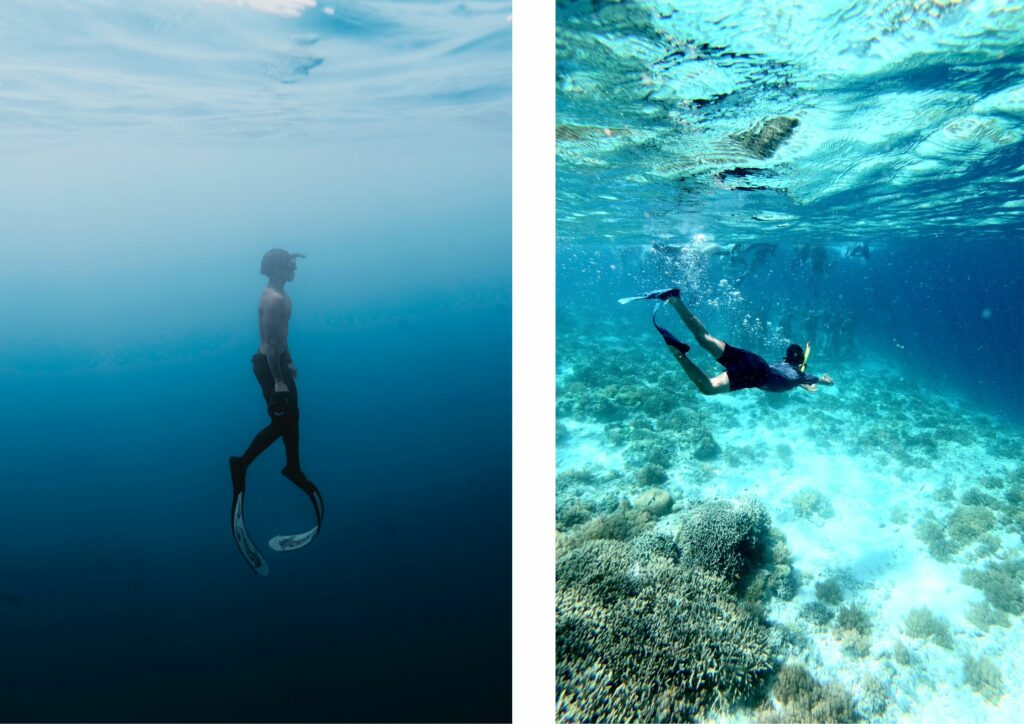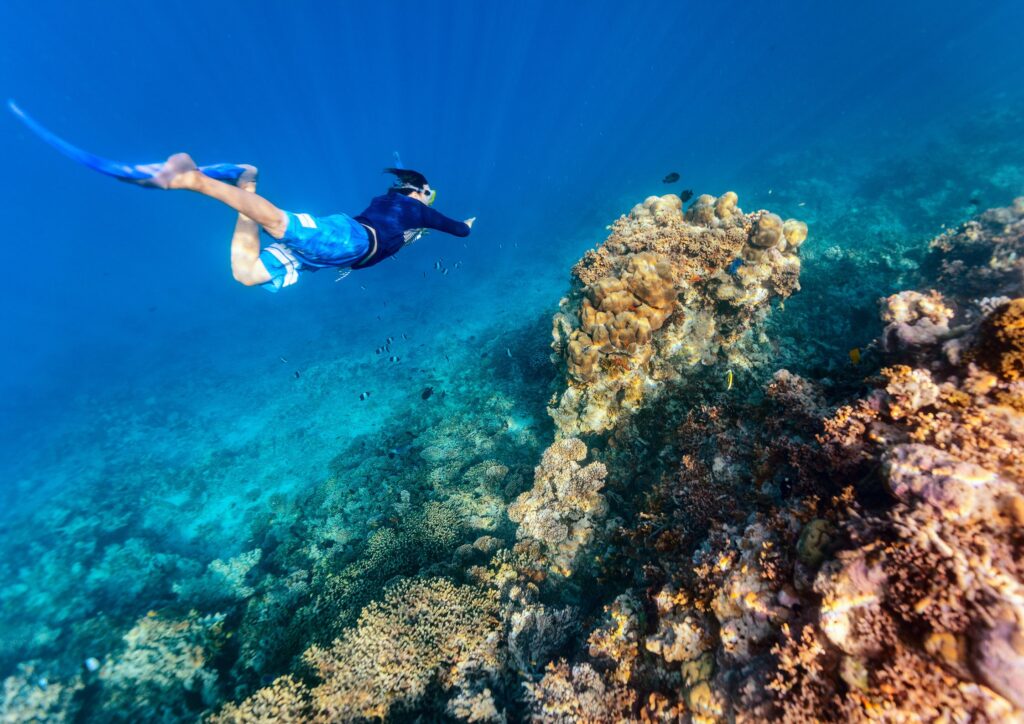As a beginner freediver, mastering Level II freediving techniques will unlock the doors to a world of breathtaking experiences. In this article, we’ll dive into the best training methods, tips, and tricks for non-fins freediving, monofin diving, and variable weight techniques that will take your breath away – literally. As you descend into the crystal-clear waters, the weightlessness and tranquility envelop your senses. The thrill of exploring the unknown depths is intoxicating, but it’s not just about the rush – it’s about respecting and appreciating the ocean’s majesty.
Understanding Level II Freediving: The Fundamentals
Level II freediving is an exciting milestone in your underwater journey. It requires a solid grasp of breathing techniques, relaxation methods, and physical conditioning. To start freediving techniques, it’s essential to understand the principles of equalization, which allows you to control your body’s buoyancy while descending. Proper equalization enables you to maintain a safe depth, reducing the risk of nitrogen narcosis or decompression sickness. Practice makes perfect, so focus on mastering the fundamentals before moving onto more advanced techniques.
The Art of Non-Fins Freediving: A Beginner’s Guide

Non-fins freediving is a freediving techniques that unique and exhilarating experience that requires finesse, patience, and practice. As a beginner, it’s crucial to start with shallow waters and gradually increase your depth as you build confidence and control. Focus on maintaining a slow, steady descent, using the water’s natural currents to your advantage. When you’re ready to ascend, execute a controlled buoyancy shift by slowly exhaling while keeping your body relaxed. This technique will help you conserve energy and avoid rapid ascents that can cause decompression sickness.
Monofin Freediving: The Ultimate Training Tool
Monofins have revolutionized the freediving world, offering unparalleled propulsion and control in freediving techniques. As a beginner, using a monofin will help you develop core strength, improve your overall technique, and increase your dive times. When selecting a monofin, look for one that suits your body type and diving style. Practice swimming with the monofin in shallow waters before moving onto deeper dives. Remember to maintain proper equalization and breathing techniques to avoid fatigue and discomfort.
Variable Weight Techniques: The Key to Success
One of the freediving techniques, variable weight freediving is a critical component of Level II training, allowing you to adjust your buoyancy mid-dive. This technique requires precision, control, and practice. Start by mastering the basics of equalization and relaxation before attempting variable weight dives. When diving with a monofin or non-fins, focus on maintaining a steady descent and controlled ascent. Use visual cues like landmarks or the seafloor to gauge your depth and adjust your buoyancy accordingly.
Conclusion: Unlocking Your Freediving Techniques Potential in Bali Diving
Mastering Level II freediving techniques requires patience, dedication, and practice. By focusing on proper equalization, relaxation methods, and physical conditioning, you’ll be well on your way to unlocking the secrets of non-fins freediving, monofin diving, and variable weight techniques. Remember to stay calm, focused, and aware of your surroundings at all times in Bali Diving. With these training methods and tips, you’ll be ready to take the plunge and explore the breathtaking depths of our ocean’s majesty in Bali Diving.

I’m excited to start learning more about Level II freediving techniques! The article provides a great overview of the fundamentals and training methods. I particularly liked the tips on non-fins freediving, monofin diving, and variable weight techniques.
Hi Aisha Nur, it’s great to hear that you’re excited to start learning more about Level II freediving techniques! Our team at Gill Divers is committed to helping you achieve your goals. If you have any questions or need further guidance on the training methods and tips provided in the article, please don’t hesitate to reach out to us at +65 6734 9373 or [email protected]. We’re always here to help. Good luck with your freediving journey!
As a beginner, I found the article to be very informative. The sections on equalization, relaxation methods, and physical conditioning were especially helpful. I’m looking forward to trying out some of these techniques during my next diving trip in Bali.
Thank you so much for taking the time to share your feedback, Kavitha! We’re thrilled to hear that our article was informative and helpful. Equalization, relaxation methods, and physical conditioning are indeed crucial components of mastering Level II freediving techniques. As you prepare for your next diving trip in Bali, remember to stay calm, focused, and aware of your surroundings at all times. If you have any further questions or concerns, please don’t hesitate to reach out to us at Tel: +65 6734 9373, Email: [email protected]. We’re always here to help. Enjoy your diving adventure in Bali!
I’ve been freediving for a while now, but this article still provided me with some useful tips and insights. The section on monofins was particularly interesting – I never knew how much control it could give you underwater!
Hi Firdaus, thank you for sharing your experience with our blog! We’re thrilled to hear that the article provided you with useful tips and insights. Monofins can indeed be a game-changer for freedivers, offering increased control and propulsion underwater. If you have any more questions or topics you’d like to discuss, feel free to reach out to us at Gill Divers (Tel: +65 6734 9373, Email: [email protected]). We’re always here to help.